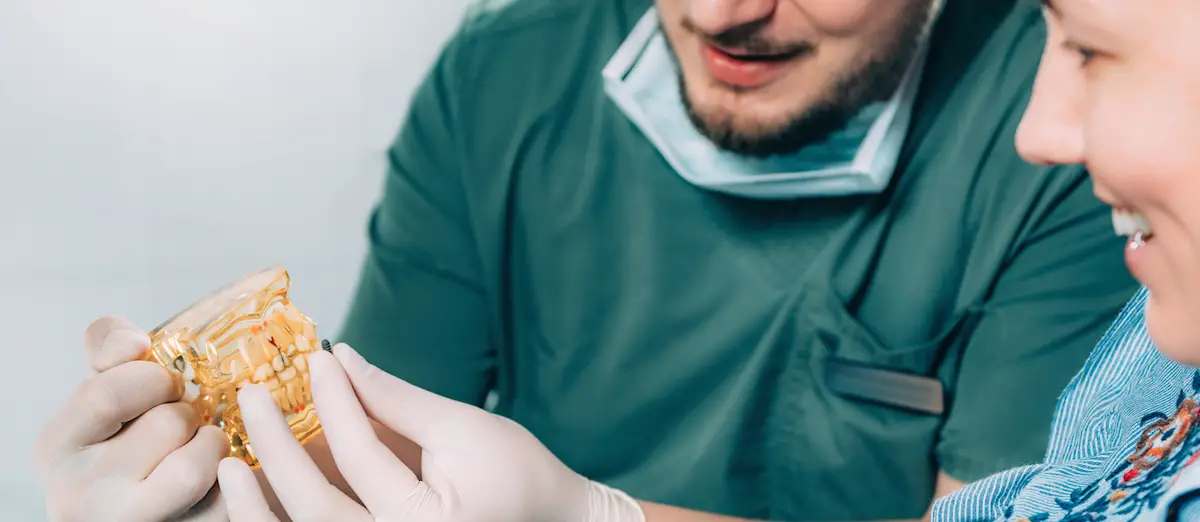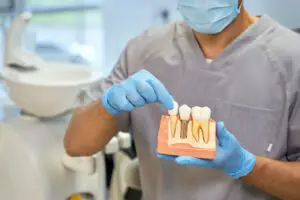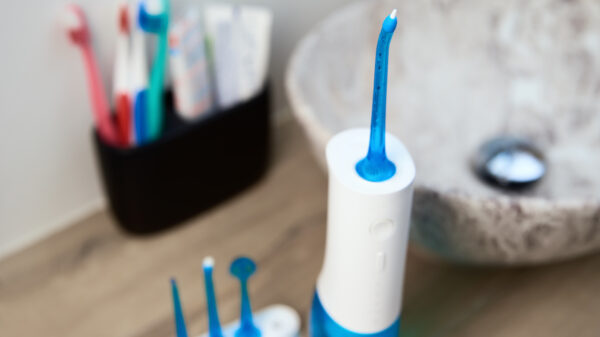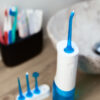What To Know About Eating Soft Food After A Dental Implant
Congratulations on taking the important step of getting a dental implant! Dental implants are a fantastic solution for replacing missing teeth and restoring your smile. However, it’s crucial to take proper care of your implant during the recovery period to ensure its long-term success. One essential aspect of post-implant care is maintaining a soft foods diet. In this comprehensive guide, we will explore the significance of soft foods after dental implant surgery, provide you with a variety of delectable options, and address frequently asked questions to support your recovery journey.
So why soft foods after dental implant? The answer lies in the need to protect the implant site, promote healing, and prevent complications. By consuming soft foods, you minimize the risk of damaging the surgical area, ensuring that the implant integrates properly with the jawbone. Additionally, soft foods are easier to chew and require less effort, reducing discomfort and allowing your body to focus on healing. Read on for more information about how to make your dental implant recovery smooth and painless.
Assisting The Healing Process And Minimizing Complications
After dental implant surgery, your body initiates a complex healing process. During the initial days and weeks, the implant fuses with the jawbone in a process called osseointegration. It is crucial to provide the right conditions for successful osseointegration, and a soft foods diet plays a significant role in this process. By choosing appropriate soft foods, you provide the necessary nutrients while avoiding any undue strain on the implant site.
Proper nutrition plays a vital role in minimizing complications after dental implant surgery. By opting for soft foods, you reduce the risk of infections, alleviate pain, and prevent any disruption to the healing process. Additionally, certain soft foods possess properties that aid in tissue regeneration and reduce inflammation, further supporting your recovery.
Soft Foods After Dental Implant: Your Comprehensive Guide
Now that we understand the importance of soft foods after dental implant surgery, let’s explore a wide range of delicious options that will keep you nourished and satisfied during your recovery period.
- Smoothies and Shakes: Nutrient-Packed Delights
Soft and refreshing, smoothies and shakes are an excellent choice for those seeking a burst of vitamins and minerals while avoiding solid foods. These delightful concoctions can be customized to suit your taste preferences and dietary needs. Blend together fruits, leafy greens, yogurt, milk, or nut milk for a creamy and nutritious treat. Don’t forget to add a scoop of protein powder to support tissue repair and regeneration.
- Silky Soups: Comfort in a Bowl
Soups are a classic go-to option for individuals recovering from dental implant surgery. Their soothing warmth and smooth texture make them an ideal choice for nourishment. Whether you opt for vegetable purees, chicken broth, or creamy bisques, soups offer a wide variety of flavors and nutrients. Ensure that the soup is blended to a velvety consistency, free of any chunks or hard ingredients that may irritate the surgical site.
- Mashed Potatoes: Creamy and Satisfying
Mashed potatoes are a timeless comfort food that can easily be enjoyed after dental implant surgery. These creamy delights are gentle on your teeth and provide a good source of carbohydrates and essential nutrients. Customize your mashed potatoes by adding butter, herbs, or a sprinkle of cheese for added flavor. For a healthier twist, consider using sweet potatoes or cauliflower as a base.
- Smooth Nut Butters: A Protein-Packed Indulgence
Nut butters, such as almond butter or peanut butter, are not only delicious but also rich in protein and healthy fats. Spread them
on a slice of soft bread or enjoy them on their own for a satisfying and nourishing snack. Ensure that the nut butter is of a smooth consistency to avoid any potential irritation to the implant site.
- Yogurt: A Creamy Probiotic Delight
Yogurt is a versatile and easily accessible soft food that offers numerous health benefits. Packed with probiotics, calcium, and protein, yogurt promotes digestive health and strengthens your immune system. Opt for plain or flavored varieties, and consider adding soft fruits or a drizzle of honey for added sweetness. Remember to choose yogurt without any hard chunks or seeds that may interfere with your healing process.
- Oatmeal: Warm and Filling
Oatmeal is a fantastic breakfast option for individuals recovering from dental implant surgery. It is not only soft and easy to consume but also provides a good source of fiber, vitamins, and minerals. Customize your oatmeal with fruits, nuts, or a sprinkle of cinnamon for a flavorful and nourishing meal to start your day.
Importance Of Hydration
It is understandable that you may struggle with having or keeping an appetite after getting dental implants. This is normal and common which is why it’s crucial that you at least stay hydrated. Staying hydrated is essential for your overall well-being and post-implant recovery. Proper hydration helps maintain healthy blood flow, aids in the delivery of nutrients to the surgical site and facilitates the removal of waste products. Additionally, drinking enough fluids can prevent dry mouth and reduce the risk of oral complications. Besides water, you can also try drinking protein shakes, coconut water, and herbal teas. Avoid alcohol and sugary drinks as they can cause complications.
Ongoing Care For Your Dental Implant
Ongoing care for a dental implant is crucial to ensure its long-term success and maintain optimal oral health. It’s important to continue practicing good oral hygiene by brushing your teeth twice a day with a soft-bristled toothbrush and using an antibacterial mouthwash. Flossing around the implant area is also essential to remove any plaque or debris that may accumulate. Regular dental check-ups and professional cleanings are necessary to monitor the implant’s condition, assess the surrounding tissues, and detect any potential issues early on. Additionally, it’s important to avoid habits like smoking and excessive alcohol consumption, as they can negatively impact the implant’s longevity.
Conclusion
Your dental implant journey deserves the utmost care and attention, and one way to ensure its success is by following a soft foods diet after dental implant. By opting for gentle, nourishing options, you protect your implant, promote healing, and minimize complications. Incorporate the delicious soft foods mentioned in this guide to keep your taste buds satisfied while supporting your body’s healing process. Remember to consult your dentist or oral surgeon for personalized recommendations and guidelines throughout your recovery journey. Take care of your dental implant, and soon enough, you’ll be ready to indulge in your favorite foods once again!
Related Questions
How long should I follow a soft foods diet after dental implant surgery?
The duration of a soft foods diet varies from person to person and depends on the individual’s healing progress. Typically, it is advisable to follow a soft foods diet for at least a week after surgery. However, your dentist or oral surgeon will provide you with personalized recommendations based on your unique circumstances.
Are there any specific foods I should avoid during my recovery period?
While on a soft foods diet, it is essential to avoid foods that are hard, crunchy, or require excessive chewing. Stay away from items such as nuts, seeds, chips, raw vegetables, tough meats, and sticky candies. These foods can cause irritation or damage to the implant site, prolonging your healing process.
Can I drink hot beverages after dental implant surgery?
Hot beverages, such as coffee or tea, should be consumed with caution after dental implant surgery. Excessive heat can disrupt the healing process and cause discomfort. If you choose to enjoy hot beverages, ensure that they are lukewarm or at room temperature to avoid any adverse effects on your implant site.
Are there any additional dietary recommendations for a successful recovery?
In addition to consuming soft foods, it is essential to stay hydrated and maintain a well-balanced diet during your recovery period. Adequate hydration supports overall healing, while a balanced diet provides the necessary nutrients for tissue repair. Avoid smoking and limit alcohol consumption, as these can hinder the healing process and increase the risk of complications.


















